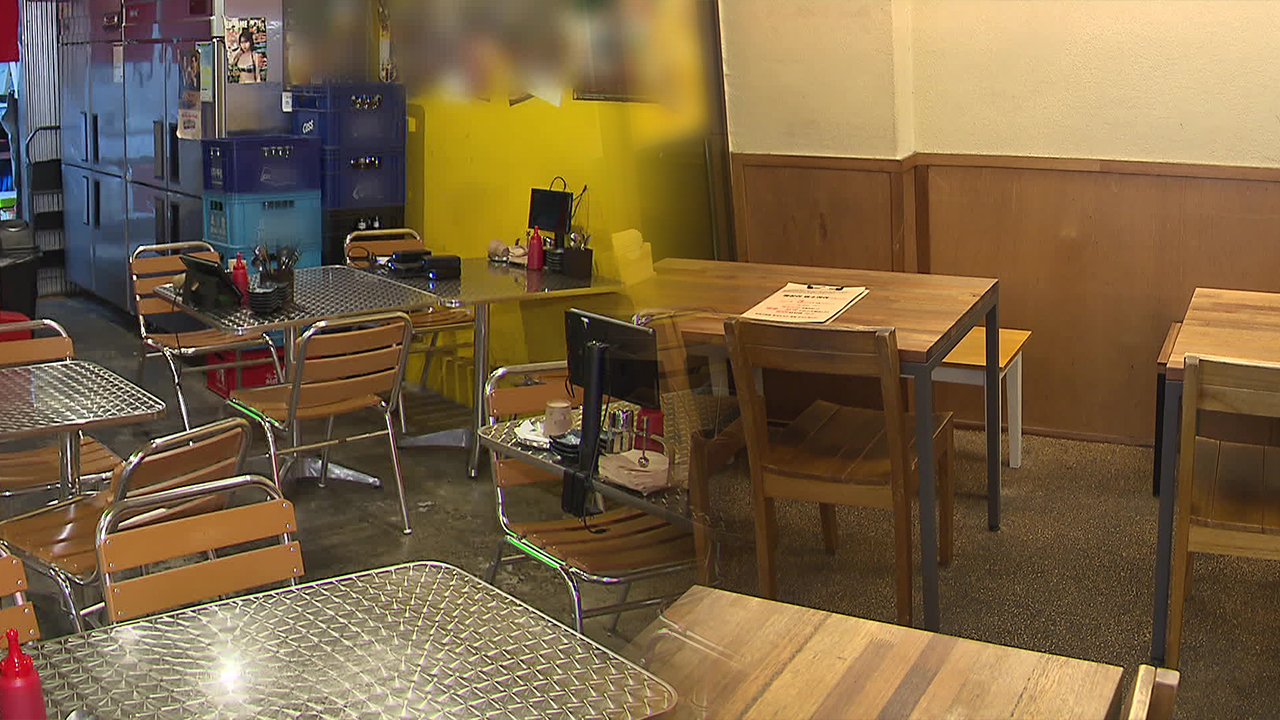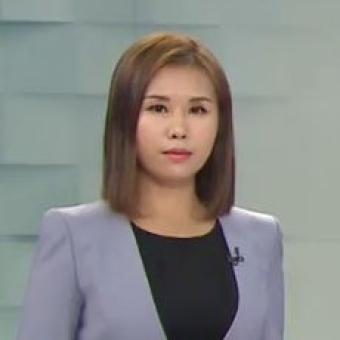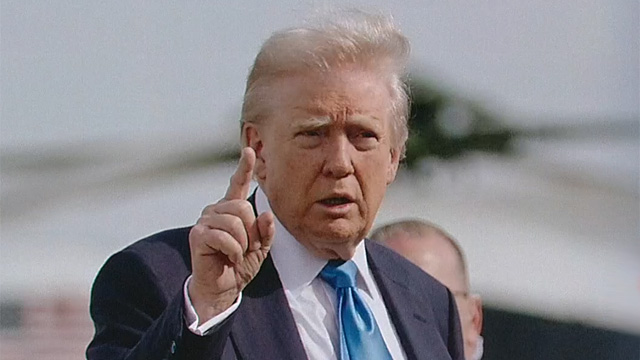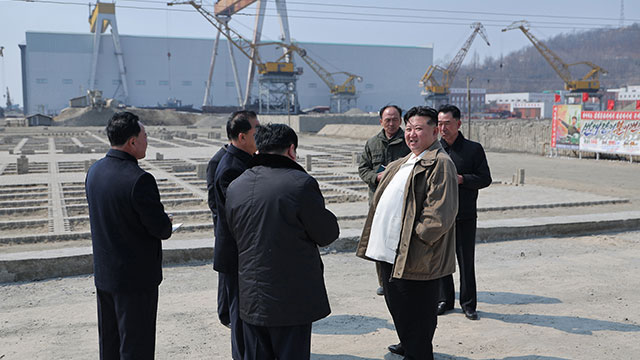Will sluggish domestic demand justify a supplementary budget?
입력 2024.12.17 (00:22)
읽어주기 기능은 크롬기반의
브라우저에서만 사용하실 수 있습니다.
[Anchor]
673.3 trillion won.
The budget for next year passed the National Assembly on December 10.
However, less than a week later, calls for additional budget allocation, or supplementary budget, are emerging mainly from the opposition.
On the day the budget passed, National Assembly Speaker Woo Won-shik mentioned 'a supplementary budget for people's livelihood,' and yesterday (12.15), Democratic Party leader Lee Jae-myung urged to 'discuss the supplementary budget quickly.'
The Bank of Korea also supported the idea, stating that 'the ruling and opposition parties should quickly agree on the supplementary budget.'
It is unusual that the government has not even started spending next year's budget, yet discussions about a supplementary budget are already underway, and it is also unusual that the opposition, which had cut the budget, is taking the lead on the supplementary budget.
Whether the ruling and opposition parties, with differing considerations, can reach a consensus on the supplementary budget is something reporter Hwang Kyung-joo looked into.
[Report]
This is a Japanese restaurant near Gangnam Station in Seoul.
Lunchtime is approaching, but the seats are not filling up.
The restaurant opened three years ago during the height of COVID-19, but they say business is worse than back then.
[Han Sang-hoon/Restaurant Owner: "In the past, many people came in groups and ate, but these days, the most we get is 3 to 4 people."]
Retail sales have decreased for 10 consecutive quarters up to the third quarter of this year.
With the combination of martial law and impeachment, the term 'disappearance of consumption' is being used.
[Bar Owner: "Business has been bad since that emergency martial law incident happened. It has completely dropped off."]
The 'News Sentiment Index,' which reflects the overall sentiment of news articles on the economy, must exceed 100 to be considered 'positive,' but it broke through 100 threshold due to the visibility of the Trump risk, then plummeted sharply after the martial law declaration, hitting the lowest point since December 2022.
As major domestic and international institutions have consecutively lowered South Korea's growth rate for next year to around 2%, warnings are increasing that if the domestic recession lasts longer, achieving the potential growth rate of 2% will also be difficult.
[Ha Jun-kyung/Economics Professor at Hanyang University: "I think it could be a condition for implementing a supplementary budget. It is urgent to help increase the sales of self-employed individuals."]
According to a survey by the Korea Federation of Small and Medium Enterprises, about half of the restaurant and accommodation businesses reported suffering from cancellations and other damages since the martial law situation.
This is KBS News, Hwang Kyung-joo.
673.3 trillion won.
The budget for next year passed the National Assembly on December 10.
However, less than a week later, calls for additional budget allocation, or supplementary budget, are emerging mainly from the opposition.
On the day the budget passed, National Assembly Speaker Woo Won-shik mentioned 'a supplementary budget for people's livelihood,' and yesterday (12.15), Democratic Party leader Lee Jae-myung urged to 'discuss the supplementary budget quickly.'
The Bank of Korea also supported the idea, stating that 'the ruling and opposition parties should quickly agree on the supplementary budget.'
It is unusual that the government has not even started spending next year's budget, yet discussions about a supplementary budget are already underway, and it is also unusual that the opposition, which had cut the budget, is taking the lead on the supplementary budget.
Whether the ruling and opposition parties, with differing considerations, can reach a consensus on the supplementary budget is something reporter Hwang Kyung-joo looked into.
[Report]
This is a Japanese restaurant near Gangnam Station in Seoul.
Lunchtime is approaching, but the seats are not filling up.
The restaurant opened three years ago during the height of COVID-19, but they say business is worse than back then.
[Han Sang-hoon/Restaurant Owner: "In the past, many people came in groups and ate, but these days, the most we get is 3 to 4 people."]
Retail sales have decreased for 10 consecutive quarters up to the third quarter of this year.
With the combination of martial law and impeachment, the term 'disappearance of consumption' is being used.
[Bar Owner: "Business has been bad since that emergency martial law incident happened. It has completely dropped off."]
The 'News Sentiment Index,' which reflects the overall sentiment of news articles on the economy, must exceed 100 to be considered 'positive,' but it broke through 100 threshold due to the visibility of the Trump risk, then plummeted sharply after the martial law declaration, hitting the lowest point since December 2022.
As major domestic and international institutions have consecutively lowered South Korea's growth rate for next year to around 2%, warnings are increasing that if the domestic recession lasts longer, achieving the potential growth rate of 2% will also be difficult.
[Ha Jun-kyung/Economics Professor at Hanyang University: "I think it could be a condition for implementing a supplementary budget. It is urgent to help increase the sales of self-employed individuals."]
According to a survey by the Korea Federation of Small and Medium Enterprises, about half of the restaurant and accommodation businesses reported suffering from cancellations and other damages since the martial law situation.
This is KBS News, Hwang Kyung-joo.
■ 제보하기
▷ 카카오톡 : 'KBS제보' 검색, 채널 추가
▷ 전화 : 02-781-1234, 4444
▷ 이메일 : kbs1234@kbs.co.kr
▷ 유튜브, 네이버, 카카오에서도 KBS뉴스를 구독해주세요!
- Will sluggish domestic demand justify a supplementary budget?
-
- 입력 2024-12-17 00:22:07

[Anchor]
673.3 trillion won.
The budget for next year passed the National Assembly on December 10.
However, less than a week later, calls for additional budget allocation, or supplementary budget, are emerging mainly from the opposition.
On the day the budget passed, National Assembly Speaker Woo Won-shik mentioned 'a supplementary budget for people's livelihood,' and yesterday (12.15), Democratic Party leader Lee Jae-myung urged to 'discuss the supplementary budget quickly.'
The Bank of Korea also supported the idea, stating that 'the ruling and opposition parties should quickly agree on the supplementary budget.'
It is unusual that the government has not even started spending next year's budget, yet discussions about a supplementary budget are already underway, and it is also unusual that the opposition, which had cut the budget, is taking the lead on the supplementary budget.
Whether the ruling and opposition parties, with differing considerations, can reach a consensus on the supplementary budget is something reporter Hwang Kyung-joo looked into.
[Report]
This is a Japanese restaurant near Gangnam Station in Seoul.
Lunchtime is approaching, but the seats are not filling up.
The restaurant opened three years ago during the height of COVID-19, but they say business is worse than back then.
[Han Sang-hoon/Restaurant Owner: "In the past, many people came in groups and ate, but these days, the most we get is 3 to 4 people."]
Retail sales have decreased for 10 consecutive quarters up to the third quarter of this year.
With the combination of martial law and impeachment, the term 'disappearance of consumption' is being used.
[Bar Owner: "Business has been bad since that emergency martial law incident happened. It has completely dropped off."]
The 'News Sentiment Index,' which reflects the overall sentiment of news articles on the economy, must exceed 100 to be considered 'positive,' but it broke through 100 threshold due to the visibility of the Trump risk, then plummeted sharply after the martial law declaration, hitting the lowest point since December 2022.
As major domestic and international institutions have consecutively lowered South Korea's growth rate for next year to around 2%, warnings are increasing that if the domestic recession lasts longer, achieving the potential growth rate of 2% will also be difficult.
[Ha Jun-kyung/Economics Professor at Hanyang University: "I think it could be a condition for implementing a supplementary budget. It is urgent to help increase the sales of self-employed individuals."]
According to a survey by the Korea Federation of Small and Medium Enterprises, about half of the restaurant and accommodation businesses reported suffering from cancellations and other damages since the martial law situation.
This is KBS News, Hwang Kyung-joo.
673.3 trillion won.
The budget for next year passed the National Assembly on December 10.
However, less than a week later, calls for additional budget allocation, or supplementary budget, are emerging mainly from the opposition.
On the day the budget passed, National Assembly Speaker Woo Won-shik mentioned 'a supplementary budget for people's livelihood,' and yesterday (12.15), Democratic Party leader Lee Jae-myung urged to 'discuss the supplementary budget quickly.'
The Bank of Korea also supported the idea, stating that 'the ruling and opposition parties should quickly agree on the supplementary budget.'
It is unusual that the government has not even started spending next year's budget, yet discussions about a supplementary budget are already underway, and it is also unusual that the opposition, which had cut the budget, is taking the lead on the supplementary budget.
Whether the ruling and opposition parties, with differing considerations, can reach a consensus on the supplementary budget is something reporter Hwang Kyung-joo looked into.
[Report]
This is a Japanese restaurant near Gangnam Station in Seoul.
Lunchtime is approaching, but the seats are not filling up.
The restaurant opened three years ago during the height of COVID-19, but they say business is worse than back then.
[Han Sang-hoon/Restaurant Owner: "In the past, many people came in groups and ate, but these days, the most we get is 3 to 4 people."]
Retail sales have decreased for 10 consecutive quarters up to the third quarter of this year.
With the combination of martial law and impeachment, the term 'disappearance of consumption' is being used.
[Bar Owner: "Business has been bad since that emergency martial law incident happened. It has completely dropped off."]
The 'News Sentiment Index,' which reflects the overall sentiment of news articles on the economy, must exceed 100 to be considered 'positive,' but it broke through 100 threshold due to the visibility of the Trump risk, then plummeted sharply after the martial law declaration, hitting the lowest point since December 2022.
As major domestic and international institutions have consecutively lowered South Korea's growth rate for next year to around 2%, warnings are increasing that if the domestic recession lasts longer, achieving the potential growth rate of 2% will also be difficult.
[Ha Jun-kyung/Economics Professor at Hanyang University: "I think it could be a condition for implementing a supplementary budget. It is urgent to help increase the sales of self-employed individuals."]
According to a survey by the Korea Federation of Small and Medium Enterprises, about half of the restaurant and accommodation businesses reported suffering from cancellations and other damages since the martial law situation.
This is KBS News, Hwang Kyung-joo.
-
-

황경주 기자 race@kbs.co.kr
황경주 기자의 기사 모음
-
이 기사가 좋으셨다면
-
좋아요
0
-
응원해요
0
-
후속 원해요
0















이 기사에 대한 의견을 남겨주세요.